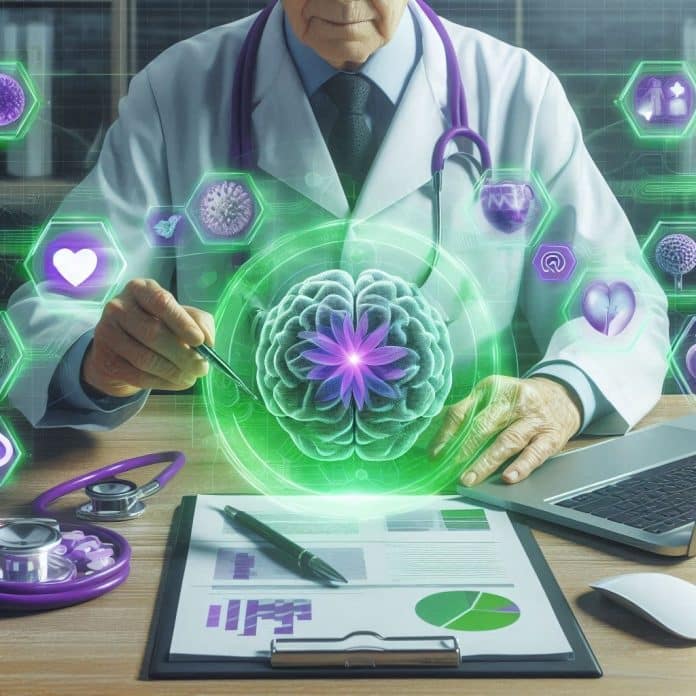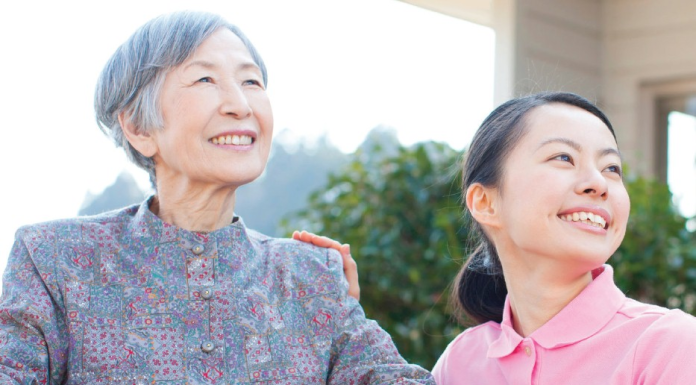Abstract
As the global population ages, dementia care continues to present unique challenges, with a pressing need for strategies that support the safety, health, and independence of dementia patients. This paper outlines a comprehensive care plan for dementia patients and explores the benefits of incorporating Rm2.ai, an AI-driven platform designed to reduce the risks of falls, dehydration, and elopement. The platform promotes location monitoring for Alzheimer’s patients with real time alerts to family members ultimately leading to saved lives, reduction of hospitalization and significant cost savings for medical institutions and communities. This approach highlights the potential of innovative technologies to enhance the quality of care, safety, and allocation of community resources.
Introduction
Dementia affects millions worldwide, requiring a structured approach to patient care that prioritizes both the physical and cognitive aspects of the condition. Comprehensive care plans play a critical role in managing symptoms, preventing complications, and ensuring safety. One of the major challenges in dementia care is balancing independence and safety, particularly as risks increase with disease progression. Falls, dehydration, and elopement are significant concerns that frequently lead to hospitalizations, escalated care needs, and increased healthcare costs.
Rm2.ai, an AI-driven memory care platform, offers a holistic yet targeted solution that enhances traditional care plans, helping older adults manage risks, remain safe, and maintain quality of life. This platform’s ability to track patients’ movements, monitor hydration, and detect fall risks provides a comprehensive safety net. This paper discusses the key components of dementia care plans and demonstrates how incorporating Rm2.ai can improve outcomes for patients and communities alike.
Components of a Comprehensive Dementia Care Plan
A well-designed care plan for dementia patients includes several core components:
Risk Management and Fall Prevention:
Dementia patients face a high risk of falls due to compromised mobility, impaired judgment, and spatial orientation issues. Non-fatal falls cost billions of dollars in health care costs annually. Particularly, in the United States, the cost is estimated at $50 billion dollars. Fall prevention strategies, such as strength training and environmental modifications, are crucial. Additionally, technologies like Rm2.ai, which feature continuous fall-risk monitoring, provide additional security by alerting family members when a fall is detected, allowing for rapid intervention.
Hydration Management:
Dehydration is common among dementia patients due to reduced thirst sensation, forgetfulness, and medication side effects. A structured hydration plan should be implemented, including reminders and frequent check-ins. Our brains are made up of approximately 85% water requiring hydration to ensure adequate cognitive function.
Dehydration has a direct impact on our brains which a study showing that 1% dehydration results in 5% decline in cognitive function [1]. Rm2.ai addresses this by integrating a smart hydration device that tracks and offers reminders for fluid intake, notifying family/caregivers of dehydration risks and enabling them to address hydration promptly.
Wandering and Elopement Prevention:
Wandering is a prominent issue among dementia patients and can lead to elopement—a major safety concern. About 60% of patients with dementia will get lost at least once and sadly 30% of them will be found dead in 24 hours [2, 3]. Care plans should include measures to manage wandering behavior safely, such as securing the environment and providing constant supervision. Rm2.ai offers location tracking and immediate alerts to families when the older adult leaves safe areas, significantly reducing the risk of harm associated with elopement.
Medication Adherence and Compliance:
Consistent medication management is critical in dementia care, as patients often require multiple medications to manage symptoms and comorbidities. A comprehensive care plan includes structured medication schedules and compliance monitoring. Rm2.ai features medication reminders that improve adherence, reducing the likelihood of missed doses and adverse health events.
Cognitive and Social Engagement:
Engagement activities are essential for slowing cognitive decline and improving mood. Care plans should include personalized social and cognitive activities that provide stimulation. Rm2.ai includes tools to connect seniors with loved ones, combatting isolation and enhancing well-being.
How Rm2.ai Enhances the Comprehensive Care Plan
Rm2.ai complements and enhances traditional dementia care plans with real-time monitoring, automated reminders, and intelligent alerts, which provide family members with actionable data for timely interventions. Key benefits of Rm2.ai in dementia care include:
Fall Risk Reduction:
The platform’s wearable device continuously monitors fall risk factors by analyzing older adults’ movement patterns. When a fall is detected, it sends alerts to the family, who can then proactively manage the environment or help. Research shows that fall prevention strategies can minimize fall-related hospitalizations by up to 30%, lowering medical costs and decreasing the burden on emergency services [4, 5].
Dehydration Prevention:
Rm2.ai’s smart hydration bottle tracks seniors’ fluid intake and provides reminders, ensuring patients meet their daily hydration goals. Preventing dehydration helps prevent complications such as urinary tract infections, confusion, and hospital admissions. Studies should that older adults stay an average of 4.6 days in the hospital due to dehydration which is a significant cost burden to our community [6]. By reducing these preventable issues, Rm2.ai can contribute to considerable healthcare cost savings. Elopement Prevention: The platform’s real-time GPS tracking feature monitors older adult’s location, sending alerts if they leave designated safe zones. Rapid response to elopement risks is critical, as wandering can result in accidents, injury, or even death. Using Rm2.ai for location monitoring can reduce emergency response calls and search-and-rescue costs, leading to substantial savings for public safety agencies.
Enhanced Caregiver Support:
Rm2.ai provides caregivers with the resources to manage day-to-day tasks more effectively, offering peace of mind and reducing caregiver burnout. By using Rm2.ai, caregivers can provide higher-quality care, feel more confident in managing the needs of older adults, and gain greater flexibility without compromising safety.
Cost Savings and Community Benefits
The economic impact of dementia care is substantial, with families and healthcare systems facing considerable expenses. However, preventative measures integrated within comprehensive care plans can reduce costs associated with hospitalization, emergency response, and extended caregiving requirements.
Reducing Emergency Room Visits and Hospitalizations:
Hospitalizations due to falls and dehydration are significant cost drivers in dementia care costing upwards to $55.5 billion dollars [5, 6]. By preventing falls and maintaining hydration, Rm2.ai will contribute to lower hospital admission rates, translating to cost savings for healthcare systems and reduced financial strain on families.
Decreasing Long-Term Care Facility Admissions:
Many families transition dementia patients to long-term care facilities primarily due to safety concerns, such as wandering and medication management difficulties. Rm2.ai mitigates these risks, enabling dementia patients to remain in their homes longer, which is often a more cost-effective option than institutional care. Lowering Public Safety Costs: Elopement cases often require costly community resources, including law enforcement and search-and-rescue efforts. Rm2.ai’s GPS tracking reduces the frequency of these events, leading to significant savings for local agencies and improving overall public safety.
Supporting Caregivers and Reducing Burnout: Caregiver burnout is a well-documented phenomenon that leads to higher turnover and increased demands on the healthcare system. By providing tools to ease caregiving, Rm2.ai can help retain caregivers and reduce replacement costs, benefiting families and care providers alike.
Conclusion
Dementia care requires a nuanced approach that prioritizes safety, health, and quality of life. By incorporating Rm2.ai into comprehensive dementia care plans, families/caregivers gain access to a valuable tool that improves patient safety, supports health management, and promotes independence. This innovative solution not only enhances the standard of care for dementia patients but also offers significant cost savings for communities by reducing the demand for emergency services, hospitalizations, and long-term care admissions.
To learn more, visit our website www.remember2.ai
References
- Fayaz Neurosurgery. (n.d.). How dehydration affects your brain. Retrieved January 10, 2025
- Wildown, S. (2023). Tragic end to local wandering cases reveal difficulties of dementia. Dayton Daily News. Retrieved January 10, 2025
- Purtill, C. (2023). How to find a missing person with dementia. The New Yorker. Retrieved January 10, 2025
- Oliver, D., Healey, F., & Haines, T. P. (2010). Preventing falls and fall-related injuries in hospitals. Clinical Geriatric Medicine, 26(4), 645–692. https://doi.org/10.1016/j. cger.2010.06.005
- Centers for Disease Control and Prevention.(2023, May 4). Facts about falls.
https://www.cdc.gov/falls/facts.html
- Xiao, H., Barber, J., & Campbell, E. S. (2004).Economic burden of dehydration among hospitalized elderly patients. American Journal of Health-System Pharmacy, 61(23), 2534–2540
Authors


























